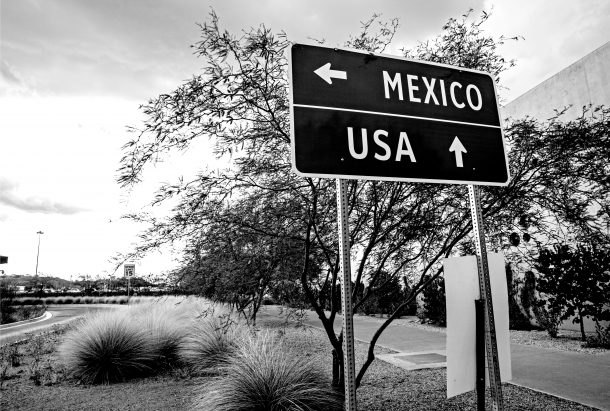U.S. Asks Mexico to Investigate Stellantis' Labor Practices

The United States has requested that Mexico investigate worker rights violations that were alleged to have taken place at one of the parts factories owned by Stellantis. Officials are curious about what’s been happening at Teksid Hierro de Mexico, a facility located in the border state of Coahuila that’s responsible for manufacturing iron casings, in regard to unionization. According to U.S. officials, this is the fourth such complaint under the United States-Mexico-Canada Agreement (USMCA).
Having supplanted the North American Free Trade Agreement (NAFTA) signed into law by the Clinton administration in 1993, USMCA sought to rebalance trade laws the Trump administration believed had disadvantaged the United States. However, it also sought to advance worker protections in Mexico and give employees an easier pathway toward unionization.
Unfortunately, political matters have complicated the issue. Some U.S. officials have been pushing for widespread unionization across Mexico, especially within the automotive sector. But it’s not always clear which union workers would best like to have represent them. Since USMCA went into effect in 2020, there have been numerous labor disputes in Mexico where the labor force has alleged that their employer was prohibiting them from organizing. However, the most common complaint is that workers are being represented by the wrong types of unions, with the United States often trying to draw attention to the matter to help steer the outcome.
You’re welcome to speculate as to why. Though the obvious supposition is that U.S. leadership would like to see more Mexican unions that would play nice with the United Auto Workers (UAW) and American Federation of Labor and Congress of Industrial Organizations (AFL-CIO). Similar to the unions in the United States and Canada, Mexican labor organizations often have a lot of political influence and are frequently tied to a particular party.
In the case of the Teksid Hierro, the U.S. Trade Representative’s office is concerned that factory workers had been denied collective bargaining rights in connection with an allegedly invalid contract with the Confederation of Mexican Workers (CTM). One of the country’s oldest and most influential organizations, it has deep ties to the Institutional Revolutionary Party (PRI), which was dominant until the early 2000s. Since then, its political influence has weakened substantially. CTM now has internal factions creating division and far more competition than in past decades.
According to Reuters, Teksid Hierro has been contending with various union rows since 2014 and the U.S. wants the matter looked into. Allegations have included Stellantis (previously Fiat Chrysler Automobiles) and CTM aggressively trying to stop workers from unionizing under the organization of their choice — which the outlet claimed was the National Union of Mine and Metal Workers of the Mexican Republic. Actions reportedly included incentivizing (effectively bribing) people to support CTM and threatening those that openly expressed their desire to join the alternative group.
Worth noting is the fact that the two unions are on opposite ends of the political spectrum. Despite things not being quite so cut-and-dried today, CTM has historically supported nationalist right-wing political candidates that dominated 20th-century Mexican politics. Conversely, the Mine and Metal Workers started out as an affiliate of the larger Confederation of Mexican Workers before breaking ties to join with the Popular Socialist Party in 1949. Since then, its predominantly allied itself with left-wing organizations that have gained ground in the 21st century and various global trade institutions. But it does share one aspect with CTM: They’ve both been accused of rampant corruption for decades.
From Reuters:
Labor disputes in Mexico have long featured intimidation tactics by powerful unions cozier with employers and governments than workers. Under the USMCA, the trade pact that replaced NAFTA, factories that violate worker rights could lose their tariff-free status.
Companies have been watching how the tougher labor rules will play out.
Stellantis, the world’s fourth-largest auto group which formed from the merger of Peugeot maker PSA and Fiat Chrysler, said it “respects and supports the collective bargaining rights of its employees around the world and will comply with all local laws in that regard.”
The United Auto Workers union, which represents U.S. Stellantis workers, along with the AFL-CIO labor federation and the Miners Union, flagged the potential violations, the [U.S. Trade Representative] office said.
Teksid, CTM and the local Conciliation and Arbitration Board should be included in the review, it added.
The situation is reminiscent of an earlier scenario involving General Motors’ Silao plant, where the United States threatened to impose import tariffs on pickup trucks manufactured there if the facility didn’t address alleged voting irregularities. The plant had apparently opted to retain CTM as its chosen representation until it matter was called into question. A repeat ballot in August of 2021 paved the way for workers to scrap their contract after pressure from the United States. This also coincided with the Mexican Secretariat of Labor and Social Welfare, the Biden administration, and dominant U.S. and Canadian trade unions getting involved. By September, the U.S. government had stated it would no longer be seeking to impose tariffs on those vehicles. Several months later, the facility voted to be represented by the SINTTIA union — which has garnered strong support from the AFL-CIO and UAW.
I suppose the point I’m trying to make here is that union efforts are rarely ever as independent as claimed because governments see them as incredibly useful political tools. We saw this for decades with CTM and have begun to see new battles being waged as alternative unions grow in strength.
Leadership from the Confederation of Mexican Workers has said it plans to abide by the current rules outlined in the USMCA and that workers should at the Stellantis factory simply have a vote and be done with it. However, Mexico’s federal labor center stated that the Miners Union was the only organization with a valid contract in May of 2022. A formal decision should be made as to whether or not Mexico will abide by the U.S. request to launch a comprehensive investigation by June 17th.
Whatever the final outcome, here’s hoping it improves productivity within the automotive sector and ultimately results in fairer compensation for workers. There’s been far too much politicking from all sides already and the industry really needs to start whipping itself back into shape.
[Image: Chess Ocampo/Shutterstock]

A staunch consumer advocate tracking industry trends and regulation. Before joining TTAC, Matt spent a decade working for marketing and research firms based in NYC. Clients included several of the world’s largest automakers, global tire brands, and aftermarket part suppliers. Dissatisfied with the corporate world and resentful of having to wear suits everyday, he pivoted to writing about cars. Since then, that man has become an ardent supporter of the right-to-repair movement, been interviewed on the auto industry by national radio broadcasts, driven more rental cars than anyone ever should, participated in amateur rallying events, and received the requisite minimum training as sanctioned by the SCCA. Handy with a wrench, Matt grew up surrounded by Detroit auto workers and managed to get a pizza delivery job before he was legally eligible. He later found himself driving box trucks through Manhattan, guaranteeing future sympathy for actual truckers. He continues to conduct research pertaining to the automotive sector as an independent contractor and has since moved back to his native Michigan, closer to where the cars are born. A contrarian, Matt claims to prefer understeer — stating that front and all-wheel drive vehicles cater best to his driving style.
More by Matt Posky
Latest Car Reviews
Read moreLatest Product Reviews
Read moreRecent Comments
- Daniel China can absolutely make quality products when contracted at the right prices or their car companies trying to compete. However, I doubt any of their nearly 100 EV companies would even want to try to break into the US market with a 25% tariff (Polestar pays this) and the huge service and support network needed other than *maaaaybe* BYD eventually and only then if they end up using their upcoming plant in Mexico for not just Latin America, but decide to try the US market without the tariffs. They def would need to have excellent quality and support to be taken seriously, we'll see!
- VoGhost I know one commenter who would love to live in Kia towers.
- VoGhost Matt, do us all a favor, will you? Since you love the term 'EV mandate' so much, could you please point to a single country or state that has mandated that consumers buy an EV? At any point in time - historical or the future. Just one, Matt. Just a single place where the term 'EV mandate' is even close to being true.
- VoGhost Just so we all have this correct, you're saying that the red states that refuse to educate their children or fund healthcare for their citizens also want them to die earlier from fossil fuel pollution? OK. I see. Makes the decision in November a little more stark.
- Golden2husky The image that sustainable products are second-rate is a problem that the industry has to overcome. Best way to do that is to make sure your first effort is a home run right out of the box. Michelin is the type of company that can make it happen.


































Comments
Join the conversation
The modern history of unions in Canada and the USA have diverged. Union density (the percentage of unionized workers) in Canada is much greater than in the USA. This is primarily due to the unionization of public sector workers. These are the most powerful unions in Canada. And because they are primarily 'white collar' workers, there interests and leadership is quite different than in the USA where union leadership is still predominantly male and focused on 'blue collar' workers. Canada also has a political party the NDP that was originally founded as the CCF by a uniting of union leaders and Evangelical Christians. Groups that in the USA are now largely opposed to each other politically. Having a political party originally/primarily supported by unions and union funds has allowed Canadian unions to engage in 'social unionism' meaning attempting to influence laws and politics. Whereas American unions primarily engage in 'business unionism' meaning focusing on gaining benefits/better conditions for their members. The impact of social unionism is found in Canada laws regarding parental leave, maternity leave, same sex couple benefits, same sex couple marriage, pay equity, employment equity, and even abortion laws. The campaigns for these were all largely funded by and publicly supported by unions and politicians endorsed by unions. The Canadian Auto Workers broke away from the UAW in the 1980s when the UAW agreed to concessions and the Canadian branch 'hung firm' and eventually were able to negotiate a 'more favourable' settlement. You can watch these negotiations for free on Youtube in the documentary Final Offer. However in my opinion this split hurt the CAW long term as now Canadian and American auto workers compete against each other for jobs. Perhaps coincidentally, the 'earning power' of both Canadian and American workers peaked at approximately the same year that union density peaked, circa 1974. Since then we have witnessed the requirement for 'dual income' families, reductions in traditional permanent fulltime working relationships, the rise of 'precarious' work, and reductions in tariffs.
"Iron casings"? Don't you mean iron castings (like blocks and heads, differential housings, etc.)? A foundry?